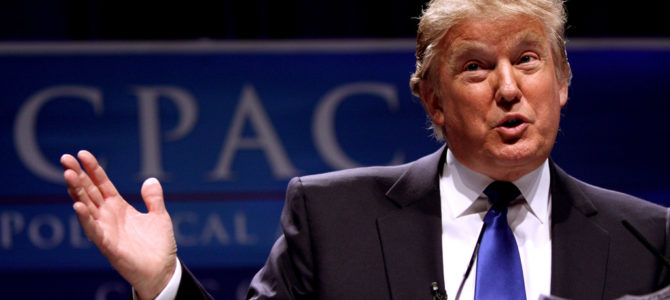One of the most suspenseful 10-day periods in American legal history culminated Monday night in Trump naming Judge Brett Kavanaugh as his pick for the Supreme Court. Of course, justices have retired before, and presidents nominated their successors. But for the Supreme Court’s “swing vote” to hang up his robes in a politically fraught time as this, and then for the White House to announce that a successor would be named on particular day at a particular time? That’s gold, Jerry, gold!
We started with the list of 25 eligible jurists that had won Donald Trump the election, assuring conservative elites and a crucial slice of the electorate that whatever crazy deviation from political orthodoxy the man represented, he actually did have the best people working on judicial nominations. (Read Salena Zito and Brad Todd’s remarkable “The Great Revolt” if you doubt that Iowa farmers and Michigan waitresses weren’t paying exceedingly close attention to the fight for Justice Antonin Scalia’s seat.)
In due course, contenders emerged — a short list of appealing personalities that ranged in background about as much as federal judges could. There was the son of Indian immigrants who was born in Toledo and made a name for himself in Kentucky (Amul Thapar); a brilliant law professor and mother of seven from Indiana (Amy Coney Barrett); an introverted Michigan judge who preferred the solitude of his wilderness cabin to the stifling Washington swamp (Ray Kethledge); a Pittsburgher who was the first in his family to graduate college and put himself through law school by driving a taxi (Tom Hardiman); and of course the boyish D.C. insider with the strong opinions on the separation of powers (Brett Kavanaugh), the only Ivy Leaguer in the bunch who seemed to have been preparing for this moment his entire life.
Clerks and other surrogates (the law’s publicists) advocated for their champions in a way I’d never seen before—or at least this was the first time anyone thought they needed to send me their “publicity materials.” The daily deluge of case summaries, legal memoranda, and other lobbying efforts became overwhelming and sometimes annoying. Then came the wave of op-eds praising this or that judge’s originalism, his or her capacity to be a political benefit or to see the law exactly like Justice Scalia, or to be Justice Neil Gorsuch 2.0.
The process finished with a prime-time special that, quite coincidentally I’m sure, ran right after the latest episode of ABC’s “The Bachelor.” The anticipation and Twitter gossip all day leading up to it — was that Barrett at the airport? where was Hardiman pumping gas? — must be how normal people feel about that other reality TV show.
I half expected the final pair to be up there on stage in the East Room, with the president turning to the runner-up and saying, “sorry, pack your robes and go,” before giving the rose gavel to the winner. Poor Hardiman — a wonderful man, and a judge’s judge — was the runner-up for the second consecutive time. Doesn’t that mean that he should get a spin-off show, perhaps getting to pick the next president in a sort of role-reversal?
Kavanaugh, who had only been added to the list in November (as had Barrett), had been the frontrunner all along. He was known to be the favorite of Don McGahn, the White House counsel, and was by far the most connected to the legal elite that, even in Trump’s Washington, hold tremendous sway over these sorts of things.
Indeed, the fact that Judge Kavanaugh wasn’t a consensus first choice shows what a deep bench Republicans have. It was also telling that the worry was never that there would be a David Souter (stealth candidate who moved left) or Anthony Kennedy (squishy moderate), but a John Roberts (conservative but one more committed to minimalism than originalism). There are still some concerns about this latter issue with Kavanaugh, but they’re ones of degree, not kind. That is, the nominee has an exceptionally strong record of enforcing constitutional structure — in the name of liberty! — and protecting both the freedom of political speech and the right to bear arms. It’s just his political caginess and cleverness that worry the cognoscenti who still feel burned by Roberts’s Obamacare betrayal.
In the end, despite the brouhaha and suspenseful plot twists, the president went with what can in this context be called the conventional conservative choice. By playing it straight, Donald Trump still managed to surprise.









